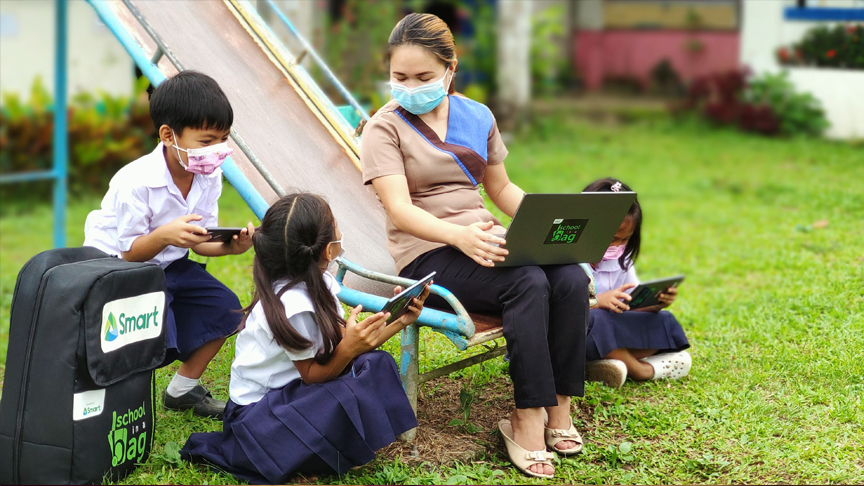PLDT and its wireless unit Smart Communications, Inc. (Smart) together with United States Agency for International Development (USAID) through RTI International continue to expand learning platforms in remote schools across the country.
“PLDT and Smart enable inclusive quality education especially in hard-to-reach areas. The School-in-a-Bag complements the programs of the Department of Education in ensuring that no learner is left behind,” said Stephanie Orlino, AVP and Head of Stakeholder Management at PLDT and Smart.
.jpg?sfvrsn=0)
PLDT, Smart and partner USAID through RTI International have turned over a School-in-a-Bag (SIAB) to Tinucan Elementary School in Tanay, Rizal. Located in the uplands, the school caters to more than 160 students from Kinder to Grade 6, including learners from indigenous communities in the area.
“The School-in-a-Bag package will greatly help students who are falling behind in their lessons. Through the gadgets that have been preloaded with learning materials, we can reach more students especially in indigenous communities who may not have the confidence to attend school,” said Analiza Garcia, school head at Tinucan Elementary School.
.jpg?sfvrsn=0)
The SIAB is a portable classroom that brings learning to last-mile schools. As the flagship education program of PLDT and Smart, each School-in-a-Bag contains a laptop for the teacher, tablets preloaded with #LearnSmart apps making use of the student’s mother tongue and other learning content that can be accessed even offline including USAID’s All Children’s Reading E-resource, and a Smart LTE pocket WiFi kit which teachers can use to download additional educational materials.
The donation is part of the 100 SIAB packages that USAID has purchased to be distributed in hard-to-access areas across the Philippines.
Since its launch in 2016, more than 500 SIAB packages have been deployed across the Philippines. With the help of partners, the program has reached almost 95,000 learners and has trained more than 4,000 teachers.
The School-in-a-Bag highlights PLDT and Smart’s commitment to inclusive quality education through Information and Communications Technology, content, pedagogy, and capacity building to ensure that there is #NoLearnerLeftBehind. These initiatives also underscore the PLDT group’s commitment in helping the Philippines achieve the United Nations Sustainable Development Goals (UNSDG) No. 4 on Inclusive Quality Education.







































































































